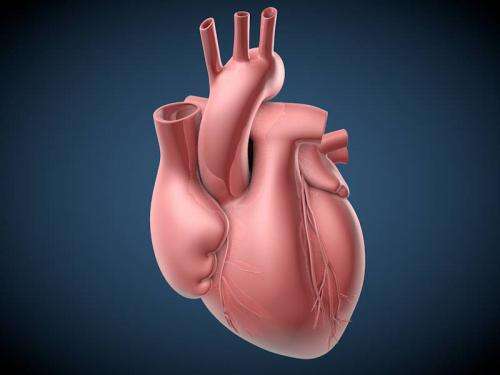Targeting mitochondrial enzyme may reduce chemotherapy drug's cardiac side effects

Massachusetts General Hospital (MGH) investigators have identified two compounds that appear, in cellular and animal models, to block the cardiac damage caused by the important chemotherapy drug doxorubicin. Their report in the Dec. 10 issue of Science Translational Medicine indicates that inhibiting the action of an enzyme that is key to the generation of cellular energy in mitochondria could prevent doxorubicin-induced damage to cardiac cells without reducing the drug's anti-tumor effects.
"Doxorubicin-induced cardiomyopathy limits the amount of the drug a patient can receive - which limits the ability to treat cancer - and even low, safer doses can lead to heart failure in up to 8 percent of patients," explains Randall Peterson, PhD, of the MGH Cardiovascular Research Center, senior author of the report. "Finding an effective cardioprotective drug - essentially separating the good and bad effects of this form of chemotherapy - could increase the beneficial effects of doxorubicin against cancer while reducing the rate of heart failure in treated patients."
The mechanism behind doxorubicin-induced cardiotoxicity remains unclear, and the only FDA-approved drug for its prevention may also reduce the anti-cancer effects, possibly leading to the development of secondary tumors. To conduct a broad search for potential protective compounds, the research team developed a zebrafish model of doxorubicin-induced heart failure against which they screened 3,000 molecules from two chemical libraries for the ability to prevent the kind of cardiac damage caused by the drug.
Eight of the tested chemicals reduced damage to the hearts of zebrafish embryos, and two compounds - visnagin and diphenylurea - were most potent in preventing both structural and functional damage. Further experiments in cells from mice and rats and in living zebrafish and mice that had been treated with doxorubicin found that either compound almost completely prevented the death of cardiac cells caused by the chemotherapy drug. In mouse models of both high- and low-dose doxorubicin treatment, visnagin - a natural compound synthesized by the toothpick weed - was able to maintain cardiac function.
Investigation of the possible mechanism behind visnagin's protective ability found that the compound binds to and inhibits the action of MDH2, an enzyme essential to the generation of cellular energy by mitochondria. Other agents that block MDH2 activity also protected zebrafish against doxorubicin-induced cardiac damage, and tests in both cellular and animal models of several types of cancer found that neither visnagin nor diphenylurea reduced the anti-tumor action of doxorubicin.
"We are still trying to determine exactly how inhibition of MDH2 protects the heart, but one intriguing idea is that doxorubicin may kill cardiac and tumor cells in different ways," explains Peterson. "Given the intense energy requirements of the beating heart, we speculate that cardiac cells may be especially susceptible to metabolic disturbance caused by doxorubicin and that inhibiting MDH2 may correct the metabolic imbalance and prevent the cells from dying.
"It remains to be seen if visnagin's protective effects are restricted to doxorubicin or if it can protect the heart from other kinds of damage," he adds. "We are pursuing this question by testing its ability to protect heart muscle from oxygen deprivation during heart attacks and from the effects of other heart-damaging chemotherapy drugs." Peterson is the Charles Addison and Elizabeth Ann Sanders Associate Professor of Basic Sciences at Harvard Medical School.
More information: "Visnagin protects against doxorubicin-induced cardiomyopathy through modulation of mitochondrial malate dehydrogenase," by Y. Liu et al. Science Translational Medicine, stm.sciencemag.org/lookup/doi/ … scitranslmed.3010189
















